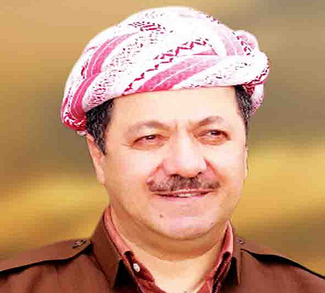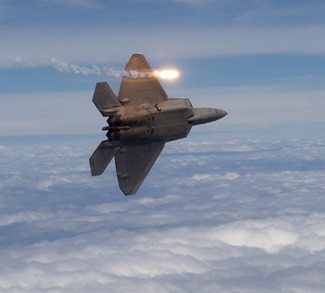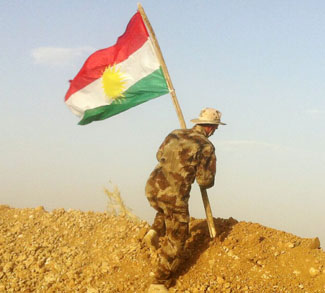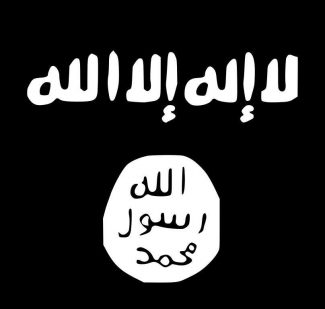With the tenth anniversary of the Iraq War and a UN report warning that April was the highest month of Iraqi casualties since 2008, one important storyline might have been missed: Iraqi Kurdistan President Massoud Barzani has been quietly building his power base within the region and has risen to become one of the most influential players in Iraqi politics.
Barzani has been leveraging his influence to put Iraqi Kurdistan onto the path to full independence. He successfully brokered the Erbil Agreement in 2010, leading to the formation of the Iraqi national government and an end to the post-election political gridlock. He also negotiated the terms of response for the long-running Sunni protests against al-Maliki. Since then, he has repeatedly been sought out by Iraqi opposition leaders as a mediating figure—a position another prominent Kurd (head of the Kurdish opposition party PUK), Iraqi President Talabani, filled before health problems sidelined him in 2010.
Building upon his relationships within the Iraqi political system, Barzani has garnered support to further his ambitions for Iraqi Kurdistan, ambition which the dysfunction of the Iraqi government sometimes furthers and at other times thwarts. Deep sectarian divisions between Shiites and Sunnis have provided an opportunity for Barzani to negotiate and establish working relationships with both Sunni and Shiite opposition parties. But the relationship between al-Maliki and Barzani has taken a turn for the worse because of disputes over oil contracts, Kurdistan’s nascent pipeline agreements with Turkey, and the lack of budget approval for the Kurdistan Peshmerga (Kurdistan’s military). Barzani has also directly challenged the Iraqi government by allowing for deposed former Iraqi Vice President Tariq al-Hashimi, accused by al-Maliki of organizing death squads targeting government officials, to stay in Kurdistan before he finalized his living arrangements in Turkey.
Kurdistan and Iraq have an ongoing dispute over the oil rights in the region. Kurdistan wants full energy independence–control of the downstream and upstream oil processes within its territory and full access to revenues. In order to achieve this goal, it has signed over 50 oil agreements with major oil companies. However, the Iraqi Parliament does not recognize those agreements and remains in full control of the revenues earned from oil in Iraqi Kurdistan. In order to bypass Baghdad’s long arm, Barzani made a deal with Turkish Prime Minister Recep Tayyip Erdogen to transport 15,000 barrels of oil a day to Turkey. The Kurds are also demanding the ratification of Article 140 of the Iraqi constitution, which calls for a referendum in Kirkuk, a move that the Maliki government has consistently opposed.
These disputes with the Iraqi government have galvanized support for Barzani within Kurdistan. Already an extremely popular politician due to his family’s history and the development of the semi-autonomous region after the U.S. invasion in 2003, he won over 70% of the popular vote in 2009. The next step for Barzani is to ratify a constitution, a feat that has eluded him for the past seven years. With Gallop’s numbers indicating that 87% of citizens living in Iraqi Kurdistan prefer a regional government with the power to override national Iraqi government decisions. Barzani clearly has the support of the people for a fully-autonomous Kurdistan without national Iraqi government intrusion. The ratification of a Kurdish constitution would solidify Barzani’s power and set a clear precedent for an independent Kurdistan.
The biggest question that remains for Barzani is the relationship between Baghdad and Kurdistan, and particularly how this relationship would react to a crisis. Already with the tentative support of Turkey as a market for Kurdish oil, Kurdistan is entering new territory. Another challenge to ease the transition to a fully-autonomous state is Kurdistan’s relationship with Turkey and Iran. Barzani needs to make it absolutely clear with Ankara and Tehran that he has no desire to annex Kurdish communities from their respective countries.
Erbil’s budding economic relationship with Turkey and Ankara’s projected future reliance on Kurdistan as a source for transit oil fees and natural gas supply has helped to rejuvinate a relationship strained by PKK terrorist attacks and Kurdistan’s involvement with the Kurdish community in Turkey. Although Turkey has indicated to the Iraqi government that it will not allow construction of a pipeline to export energy from Kurdistan without the approval of the federal government, Ankara will likely not overlook the potential lucrative transit fees of $5 billion a year for transporting Kurdish energy. Further Sunni disagreement and sectarian conflict with the federal government could conceivably force Ankara to hedge its bets for the future of Kurdish oil bypassing its arrangement with Baghdad.




